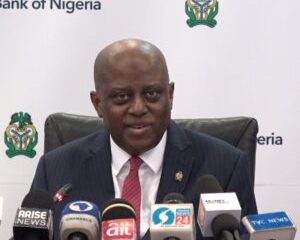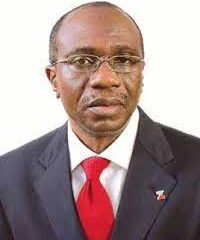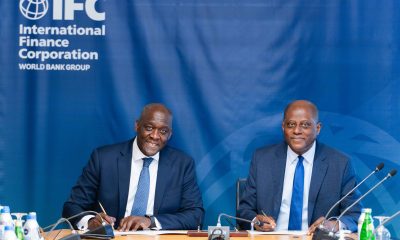Business
Nigeria’s foreign reserves rise 12.74 % to $39.12b
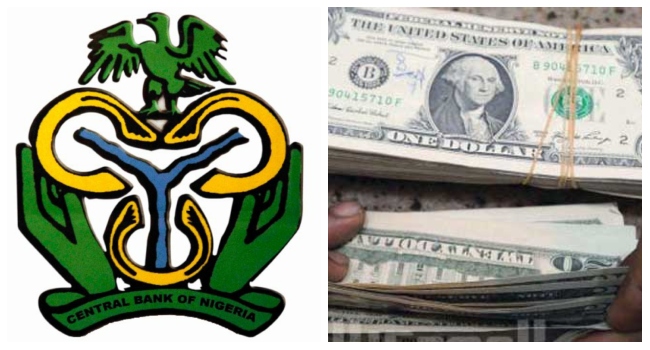
The Governor of the Central Bank of Nigeria (CBN), Yemi Cardoso, has said that Nigeria’s reserves have risen to $39.12 billion as of October 11, 2024.
The CBN governor said this translates to about a 12.74 percent increase from $34.70 billion at the end of June 2024.
Cardoso said the growth was driven largely by foreign capital inflows, receipts from crude oil-related taxes, and third-party contributions while also outlining the apex bank’s plans to address the spiralling inflation in the country.
This was as he said the bank’s recapitalization policy has prompted banks to strengthen their financial positions, a process expected to result in a more robust and resilient banking sector by March 2026.
The exercise, Cardoso said, is expected to support the realisation of a US$1 trillion economy by 2030.
He said this while addressing the House of Representatives Committee on Banking on policy measures and strategies to address domestic macroeconomic challenges.
On the macroeconomic performance in 2024, he said projections indicate a growth rate of 3.2 percent and 3.3 percent for 2024 and 2025, respectively.
He added that Nigeria is projected to maintain a more robust 4.3 percent growth rate.
Cardoso said the non-oil sector maintained strong performance, contributing 94.30 percent to GDP with a steady 2.80 percent growth rate.
He added that the oil sector’s growth rate has almost doubled to 10.15 percent in Q2 2024 from 5.70 percent in Q1 2024, due mainly to improved security surveillance, which resulted in increased production of crude oil and natural gas.
He said the services sector continues to be the primary economic driver, contributing 58.76 percent to GDP with a robust growth rate of 3.79 percent.
Similarly, he said the industrial sector has shown remarkable improvement, with its growth rate surging to 3.53 percent from 0.31 percent.
He pointed out that the contribution of agriculture to total GDP also increased. In addition, the growth rate of the sector rose to 1.41 percent from a negative territory of -0.90 percent, indicating a substantial turnaround in productivity.
He also said the foreign exchange reserves have grown significantly, with remittance flows currently representing 9.4 percent of total external reserves.
In Q2 2024, we maintained a current account surplus and saw remarkable improvements in our trade balance, he said.
Cardoso said the current external reserve position can finance over 12 months of imports of goods and services, or 15 months of goods only.
This is substantially higher than the prescribed international benchmark of 3.0 months, reflecting a robust buffer against external shocks, he said.
He said inflation trended upward, driven largely by high food prices, the cost of energy, and legacy infrastructural challenges, but it commenced deceleration from 34.19 percent in June 2024 to 33.40 percent in July 2024.
He said the moderation in inflation became more pronounced in August 2024, as headline inflation further eased to 32.15 percent.
This, he said, was largely attributed to monetary policy measures taken by the bank.
With aggressive monetary policy tightening coupled with robust monetary-fiscal policy coordination, inflation is expected to further trend downward in the near-to-medium term, Cardoso said.
To combat inflation, he said they had fully reverted to an orthodox monetary policy approach and implemented a comprehensive set of monetary policy measures.
These include raising the policy rate by 850 basis points to 27.25 percent, increasing cash reserve ratios, and normalising open market operations as our primary liquidity management tool.
He said, “In addition, we have adopted an inflation-targeting (IT) monetary policy framework as part of the bank’s Enterprise Strategy (2024-2028).
“The IT framework, widely adopted across various global economies, is renowned for its effectiveness in combating persistent inflation.
“These integrated measures are aimed at stabilising prices, optimising liquidity management, and engendering an effective monetary policy framework.
“Regarding the foreign exchange market, the bank implemented various reforms, including a unification strategy, which streamlined various exchange rate windows into a single model, adopting the ‘willing buyer, willing seller’ approach to enhance FX liquidity and financial market stability.
“This move was aimed at fostering transparency, reducing market distortions, and enhancing the efficiency of foreign exchange allocations.
“This consolidation involved the implementation of new operational guidelines, which included removing the International Money Transfer Operators (IMTOS) quote cap.
“Additionally, the bank resumed the sales of FX at the NAFEM and Bureau De Change (BDC) segments, bolstered by an improved supply from foreign portfolio investors (FPIs).”
On banking supervision, he said the CBN has taken decisive actions to ensure the safety, soundness, and resilience of the banking industry.
“One of the key measures includes the recapitalization of the banking sector by raising the minimum capital base to support the $1 trillion economy envisioned by the Federal Government of Nigeria (FGN) by 2030,” he said.
“Banks are required to meet these new thresholds by March 31, 2026, with several options available for reaching these targets.
“These options include issuing new equities, engaging in mergers and acquisitions, or adjusting their operational licences. The bank also revoked the licence of Heritage Bank, facilitated the successful merger of Unity Bank and Providus Bank, revised cybersecurity rules for banks and PSPs, suspended processing fees on cash deposits, and enhanced AML/CFT supervision, amongst others.”
On monetary and fiscal policy coordination, he said they had strengthened collaboration during the period under review.
He added, “In this regard, several joint committees have been instituted to build synergy and to provide platforms for key stakeholders’ engagements to explore ways through which monetary policy implementation and fiscal operations can be conducted in a mutually reinforcing manner.
“Overall, our policy measures reflect a holistic approach to addressing various challenges in the economy. While some measures have immediate effects, others are designed to bring about long-term structural changes. Our ultimate goal is to create a more stable, resilient, and efficient monetary and financial system that can better serve the Nigerian economy while adhering to global best practices,” Cardoso said.
The bank’s numerous policy initiatives are yielding significant results across various sectors of the economy.
“In the foreign exchange market, we have achieved increased transparency and improved overall supply. By allowing the foreign exchange rate to be determined by market demand and supply, the CBN has reduced arbitrage and speculative activities and eliminated the front-loading of FX demand.
“These policy measures have effectively narrowed the exchange rate disparities between the NAFEM and BDC segments, which have largely led to the convergence of FX rates. Improved transparency in the market has restored market confidence leading to increased capital inflows, which enabled the CBN to clear existing FX backlogs.
“The settlement of all legitimate backlogs of outstanding FX obligations by the bank has significantly improved Nigeria’s credibility and ratings across the global financial market, helping to boost investor confidence and enhanced liquidity in the foreign exchange market.
“With improved investor confidence, foreign investments have increased as evidenced by a significant rise in capital importation by 65.56 percent to $6.49 billion between January and July 2024, compared to $3.92 billion in the corresponding period of 2023.
“Collectively, these actions have contributed significantly to the stability of the financial system. While inflation remains a major concern, we are not relenting in ensuring that requisite measures are taken.
“Headline inflation slightly increased from 32.15 percent in August to 32.70 percent in September 2024. The MPC further tightened the policy rate in its September meeting in anticipation of an uptick in inflation due to the upward adjustment of the petroleum pump price.
“On a positive note, there was a moderation in core inflation from 27.58 percent to 27.43 percent over the same period. We therefore expect the year to end with significant moderation in inflation as our policy measures permeate the real economy,” he said.
The CBN Governor also said the capital market has responded positively to their policies, with the All-Share Index and market capitalization sustaining positive gains, reflecting renewed investor confidence.
“In general, Nigeria’s international standing has improved, with rating agencies upgrading our sovereign credit ratings.
“In the banking sector, our policies have resulted in improved market oversight and operational efficiency. Key financial soundness indicators show a robust capital adequacy ratio and improved liquidity ratio, amongst others.
“In addition, the bank’s recapitalization policy has prompted banks to strengthen their financial positions, a process expected to result in a more robust and resilient banking sector by March 2026.
“The exercise is expected to support the realisation of the $1 trillion economy by 2030.
“Amidst the identified challenges, the bank’s sustained reforms and strategic interventions have produced encouraging outcomes in diverse areas of our financial landscape and the broader economy.
*Overall, the banking industry remains sound, safe, and resilient, with improvements in liquidity and asset quality,” he said.
On the outlook for the economy, Cardoso said he was confident as the country expects continued positive growth, especially in the non-oil, oil, and industrial sectors.
“However, we remain cautious about potential global economic disruptions and domestic challenges.
“We project the services sector to remain the primary economic driver, while the industrial sector is expected to continue its recovery.
“Agricultural growth is anticipated to improve, supported by the harvest season and government initiatives.
“The oil sector is also expected to maintain positive growth, assuming no significant disruptions.
“Inflation remains a pressing concern, but there are reasons for optimistic outlook. Inflation has shown gradual moderation, indicating that the Bank’s monetary policy measures are becoming effective.
“We anticipate steady moderation of inflationary pressures in the last quarter of 2024, supported by our monetary policy measures and the Federal Government’s recent initiatives, such as tax incentives on businesses in the economy.
“The Naira exchange rate has shown some recent improvement as indicated by relative stability.
“We must acknowledge key risks, including global economic uncertainties, security challenges, potential oil price volatility, decline. With your support and the Central Bank’s steadfast dedication, I am confident we can pave the way for a more prosperous Nigeria,” he said.
On the macroeconomic performance in 2024, he said although positive, these estimates remain below historical averages, suggesting moderate rather than robust expansion.
“However, we must remain vigilant as the ongoing geopolitical tension such as the Russian-Ukrainian war and the Middle East crisis, lingering supply chain disruptions and inflationary pressures continue to pose significant risks.
“In the crude oil market, we have observed a decline in prices during the third quarter of 2024, primarily driven by increased supply and revised global demand projections.
“Turning to domestic developments, I am pleased to report that our economy has demonstrated remarkable resilience. In the second quarter of 2024, the economy grew by 3.19%, up from 2.51% in the corresponding period of last year, driven largely by the non-oil sector.
“The Services sector continues to be the primary economic driver, contributing 58.76 per cent to GDP with a robust growth rate of 3.79 per cent. Similarly, the Industrial sector has shown remarkable improvement, with its growth rate surging to 3.53 per cent from 0.31 per cent. The contribution of agriculture to total GDP also increased. In addition, the growth rate of the sector rose to 1.41 per cent, from a negative territory of -0.90 per cent, indicating a substantial turnaround in productivity.
“Importantly, the non-oil sector maintained strong performance, contributing 94.30% to GDP with a steady 2.80% growth rate. The oil sector’s growth rate has almost doubled to 10.15 per cent in Q2, 2024 from 5.70 per cent in Q1, 2024, due mainly to improved security surveillance which resulted in increased production of crude oil and natural gas.
“On the fiscal front, the deficit-to-GDP ratio stood at 4.1 per cent for the first half of 2024, while consolidated public debt was 51.2 per cent at end-March 2024. Although total debt stock exceeds the self-imposed 40.0 per cent national threshold, it remains well within the international benchmark, indicating that our debt levels remain within manageable limits, although requiring attention.
“In the foreign exchange market, we have adopted key policy measures leading to improved efficiency in the market. In particular, Diaspora remittances through International Money Transfer Operators (IMTOS) have risen considerably by 36.61 per cent to US$552.94 million in July 2024, from US$404.75 million in May 2024,” he said.
He said they have embarked upon various initiatives to improve the remittance ecosystem.
Some of these initiatives include the Expansion of IMTOS, strengthening compliance and improving transparency in the sector, finalising the modalities for non-resident accounts with fewer requirements, following successful models in countries like India and Pakistan, and automating the reporting process for IMTOS through the Financial Institutions Foreign Exchange Reporting System (FIFX) platform to foster transparency and efficiency.
He said these initiatives are part of a broader effort to enhance remittance inflows and strengthen the Nigerian economy.
“As a result, remittance inflows which averaged $285 million per month in 2023 improved significantly as we achieved an impressive $585 million by August 2024. This remarkable growth stands as a testament to the hard work and dedication of everyone involved. The Bank remains focused on policies that safeguard the value of the naira and foster price stability
“Thus, remittances have contributed to improving the country’s balance of payments, resolving debt issues, and fostering exchange rate stability. These inflows are expected to significantly improve by the end of the year given the positive trajectory.
“ In addition, the spread between the Nigerian Foreign Exchange Market (NFEM) and Bureau de Change (BDC) rates has narrowed significantly from N317.91 in January 2024 to N93.47 in September 2024, reflecting fundamental price discovery, enhanced market efficiency, and reduced arbitrage opportunities,” he said.
You may like
-
CBN issues Dec. 1, ultimatum against banks, ATM delays
-
CBN sets new guidelines for FX trading
-
Naira appreciates against dollar despite CBN interest rate hike
-
CPPE raises concern over CBN’s MPR hike to 27.50%
-
Breaking: CBN increases interest rate to 27.5%
-
CBN to Nigerians: Beware of fraudulent contracts, project funding claims
-
Emefiele’s CBN new naira different from Buhari’s approval – Witness
-
UK-based Nigerian alerts EFCC, CBN on danger of using card online
-
CBN, IFC sign agreement to boost financing for businesses
-
CBN can’t dictate how, when NNPC buys dollars — Cardoso
-
Naira redesign: Emefiele violated procedure, ex-CBN deputy governor
-
Naira Redesign: Emefiele violated procedure, ex-CBN deputy governor
Business
Tax Reform Bills scales second reading in Senate

The Senate has passed for second reading fours bills designed to reform Nigeria’s tax system.
This followed the presentation of the general principles of the bills by the Senate Leader, Opeyemi Bamidele (APC-Ekiti), during plenary on Thursday.
The four bills, which were first read on Oct. 30, are:o Joint Revenue Board of Nigeria Establishment Bill, 2024; Nigeria Revenue Service Establishment Bill, 2024; Nigeria Tax Administration Bill, 2024 and the Nigeria Tax Bill, 2024.
Leading the debate on the general principles of the bills, Opeyemi said
that they represented a significant move toward overhauling the country’s tax system.
He said that the bills were aimed at simplifying the tax landscape, reducing the burden on small business and streamlining how taxes would be collected.
According to him, the four bills seek to ensure uniformity in tax revenue administration in the country, in accordance with the provisions of the constitution and eliminate the incidence of double taxation across the country.
He said that the bills also sought to deploy taxation as a tool for encouraging private sector investments in critical industries and boosting individuals’ disposable incomes through targetted tax exemptions, as captured in the various bills.
“In the area of tax exemptions, there is a proposal to exempt small business operators, while those with annual turnover of N50 million or less are equally exempted from payment of taxes.
“Similarly, there is a reduction in company’s income tax from the current 30 per cent to 25 per cent by 2026.
“As part of deliberate attempt to curtail incidence of double taxation and multiplicity of taxes and levies, multiple taxes hitherto paid by companies under various tax heads namely: 2.5 per cent education tax, 0.25 per cent NASENI tax have been harmonised into a development levy of two per cent.
“This will be applied by 2030 to fund the newly-established student loan scheme which will benefit many Nigerian youths.
” Unlike like what is obtainable under the existing tax regime whereby the Federal Government takes a lion share of VAT revenues, it is proposed that the sharing formula should allow state governments to share 55 per cent of VAT revenue from the current 15 per cent to 10 per cent sharing formula,” he said.
He, however, said local governments share of VAT revenue remained unaffected.
“Relatedly, basic items consumed by Nigerian households, such as food items, medical services and pharmaceuticals, educational fees, electricity, etc. are exempted from VAT.
“Again, as part of efforts to ease the administration of income taxes and levies across the federation, there is a reasonable effort made to consolidate core tax statutes and related tax legislations,” he said.
The senator said that the bills contained innovative and people-oriented proposals as part of government’s deliberate fiscal and tax reform measures.
He said that the bills were meant to cushion the effects of the ongoing broader economic policies, such as the removal of subsidy on petroleum products.
Opeyemi said that the innovations were also tailored toward implementing cost-reflective electricity tariffs in the power sector.
He urged the lawmakers to see the bills as part of the required legislative intervention to support the ongoing fiscal and tax reform measures needed to reposition the Nigerian economy for growth and productivity.
“These bills should be considered with great sense of patriotism and exercise of the powers of the National Assembly under Section 59 of the 1999 Constitution regarding imposition of taxes.
“I, therefore, urge my distinguished colleagues to support the bills for second reading.
Contributing, Sen. Seriake Dickson (PDP-Bayelsa) lauded the bills, saying that they would entrench the much-canvassed fiscal federalism.
However, Sen.Ali Ndume (APC-Borno) said although he was not against reforms and tax reforms in Nigeria, he, however, said that the timing of the bills was the issue.
Ndume said that the issue of derivation proposed in the bills was contradictory, stressing that the constitution needed to be amended for some of the proposals in the bills to sail through.
He said that in inline with the positions of the governors and traditional rulers, the bills should be withdrawn for further consultations.
Ndume specifically said that the issue of VAT and derivation should be addressed, adding that senate should consult first before further legislative inputs could be made on the bills.
However, Senate Chief Whip, Sen. Mohammed Monguno (APC-Borno), vehemently disagreed with Ndume, saying that his position negated the senate rule on processes of lawmaking.
He said Section 60 of 1999 Constitution, as amended, empowered the senate to regulate its procedure.
According to Monguno, the process of law-making, as stated in the senate’s rule, was unambiguous, nothing that after second reading, the bill will be transmitted for public hearing, where Nigerians of all groups will be free to make their inputs on the bills.
The senator said that Ndume’s suggestion for senate to withdraw the bills was foreign to legislative process, describing the suggestion as an academic exercise that was not worthy of legislative consideration.
According to him, the bills are noble and pro-people, as it will reduce the tax burden on Nigerians.
President of the Senate, Godswill Akpabio, after the reading of the bills for the second time, said all concerned stakeholders, should be invited at the public hearing to make their inputs before final clause-by-clause consideration by the senate.
He consequently referred the bills to Senate Committee on Finance for further legislative inputs, with a directive to return back to plenary in six weeks.
Business
UBA to begin full banking operations in France
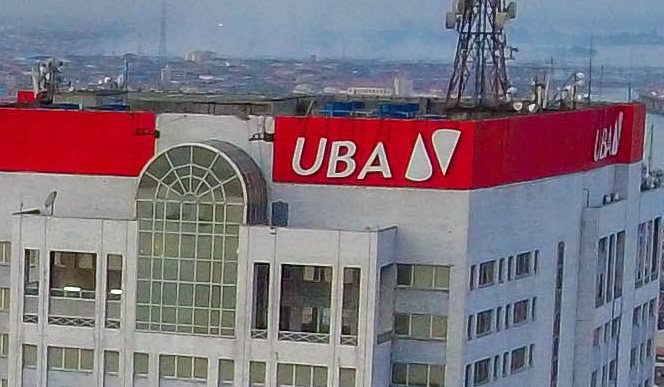
The United Bank for Africa has signed a deal to commence full banking operations in France.
In a statement late Thursday, the banking group said the landmark business cooperation agreement with the French Finance Minister, Antoine Armand, was part of President Bola Tinubu’s state visit to France.
During the visit, the Chairman of UBA Group, Tony Elumelu, in the presence of Tinubu and the President of France, Emmanuel Macron, signed the agreement indicative of support by the French Government for the development of UBA’s full banking operations in France.
Speaking at the signing ceremony, Elumelu said, “This partnership reinforces our commitment to seamless international banking services for our customers, not just across the 11 Francophone African countries we serve, but Africa as a whole and French and European customers transacting with Africa.
“Expanding into France is a natural progression, with Paris serving as our European Union hub as we continue to bring Africa and the world together through innovative financial solutions. Paris will join London, New York, and Dubai as a critical component of our unique global network.”Related News
With this agreement, UBA joins tier-1 banks in Nigeria, running with a banking presence in France.
Tinubu arrived in France on Thursday for a two-day state visit, with both sides looking to deepen their economic and diplomatic ties.
It is the first official state visit to Paris by a Nigerian leader in over two decades.
Macron welcomed his counterpart with a warm greeting in Nigerian Pidgin English, stressing the cultural connection between the two leaders.
“Na big honour for France to welcome you for dis state visit,” he wrote on social media.
Business
CBN sets new guidelines for FX trading
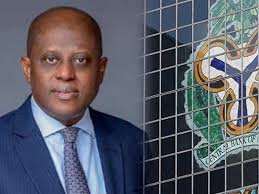
The Central Bank of Nigeria (CBN) on Wednesday announced new guidelines for foreign exchange (FX) trading through the Electronic Foreign Exchange Matching System (EFEMS).
CBN’s director of the Financial Markets Department, Omolara Duke, made this in a statement, stating that the new guidelines aim to ensure transparency, fairness, and compliance in FX trading.
The minimum tradable amount is set at $100,000; CBN disclosed this in a tweet, adding it will be effective December 2, 2024.
“The CBN transitions FX trading to Bloomberg BMatch, promising enhanced transparency, fair pricing and operational efficiency, effective December 2, 2024,” the apex bank tweeted.
CBN also stated that the Bloomberg BMatch platform will boost market integrity, enhance price discovery, and ensure seamless FX trading among participants.
General Provisions
1. These guidelines regulate the operations of interbank FX trading via the Electronic Foreign Exchange Matching System (EFEMS),
2. The purpose is to ensure transparent, fair, and efficient FX trading, minimising counterparty risk and ensuring compliance with Central Bank of Nigeria (CBN) regulations. and greater
3. The CBN has approved the Bloomberg BMatch as the designated platform to support the EFEMS for interbank trading. advised to
4. All market participants are required to comply strictly with these guidelines and any amendments as may be issued by the CBN from time to time.
Trading and Operational Requirements
1 Trading hours shall be from 09:00 hrs to 16:00 hrs WAT on business days.
2 All unmatched orders will be cleared at the market’s close and may be resubmitted on the
following business day.
3 Quotes on EFEMS will remain anonymous until matched. Once matched, counterparty details will be revealed for settlement purposes.
4 All trades consummated on EFEMS are binding, unless canceled by mutual agreement of both parties with written approval from the CBN.
5 The minimum tradable amount is US$100,000.00, with incremental clip sizes of US$50,000.00.
6 Participants must set credit and settlement limits for other counterparties in the system.
Transactions exceeding these limits will not be executed.
7 Participants must have adequate credit and settlement limit set for the CBN as its counterparty bank.
8 Participants are required to comply with the Nigerian Foreign Exchange Code and other CBN regulations.
9 EFEMS shall be used exclusively for executing spot FX transactions involving the Nigerian Naira (NGN) against the United States Dollar (USD). Other currency pairs may be introduced upon the CBN’s directive.
10 Transactions on EFEMS must be settled through approved settlement systems, with participants
bearing responsibility for their obligations.
1 The platform provider must offer real-time support to address system issues. In the event of prolonged downtime, alternative trading protocols will be activated as prescribed by the CBN.
12 Any participant defaulting on settlement obligations will face penalties as determined by the CBN.
Governance and Data Reporting
1 The CBN shall monitor all transactions on EFEMS to ensure market integrity and transparency.
2 Participants must submit daily transaction reports only to the CBN, detailing trade volumes, counterparties, and settlement status. All whole/interbank trades conducted between Authorised Dealers and non-banks participants on telephone and other acceptable channels in the market must be confirmed on the RFQ and reported on EFEMS immediately. Any deal that falls outside the EFEMS parameters, such as same day or next day settlements delivery vs payment transactions where limits are exceeded and deals with non-standard amount should be booked via the RFQ functionality and uploaded automatically to the FX blotter not more than 10 minutes after the completion of the trade.
3 All trade data generated on EFEMS shall be owned by the CBN. The CBN reserves the right to publish aggregated or disaggregated data for market analysis, subject to confidentiality agreements.
4 The CBN reserves the right to review EFEMS operations, including participant activities and system efficiency, periodically.
5 Violations of these guidelines or other applicable regulations shall attract penalties, including suspension or revocation of EFEMS access rights.
Business
Naira appreciates against dollar despite CBN interest rate hike

Despite the announcement of an interest rate hike by the Central Bank of Nigeria (CBN) on Tuesday, the naira appreciated to N1, 659.44 against the US dollar.
Data from the Nigerian Autonomous Foreign Exchange Market (NAFEM) showed a N16.88 gain against the dollar from the N1, 675.62 it traded at on Monday.
A look at the parallel section of the foreign exchange market showed a gain of N5 for the naira against the dollar, trading at N1,750 compared to the N1,755 it traded at on Monday.
The naira, however, didn’t record any change in trade against the British pound on Tuesday as it still exchanged at Monday’s rate of N2,245 against the pound.
Also, the naira maintained N1,300 against the Canadian dollar but appreciated marginally against the Euro to trade at N1,840/€1 as against the previous day’s rate of N1,845/€1.
Business
CPPE raises concern over CBN’s MPR hike to 27.50%

The Centre for the Promotion of Private Enterprise (CPPE) has raised concerns over the Central Bank of Nigeria’s (CBN) sustained tightening of the Monetary Policy Rate (MPR), now at 27.50 per cent.
Dr Muda Yusuf, Chief Executive Officer of CPPE, stated in Lagos on Tuesday that the continued rate hikes by the Monetary Policy Committee (MPC) could further stifle economic growth.
NAN reports that the MPC of the CBN, during its 298th meeting, further raised the country’s interest rate to 27.50 per cent from 27.25 per cent.
It, however, retained the Cash Reserved Ratio (CRR) at 50 per cent for Deposit Money Banks and 16 per cent for merchant banks.
The committee also retained the Liquidity Ratio at 30 per cent, and also the Assymetric Corridor at +500/-100 basis points around the MPR.
“It is troubling that despite the declining growth performance of many critical sectors of the economy as evidenced in the third quarter GDP report, the MPC still continued its tightening stance.
“The GDP sectoral performance report also revealed a glaring disconnect between the financial services sector and the real economy,” he said.
He said that the financial services sector recorded a growth of 32 per cent while agriculture and manufacturing grew by 1.14 per cent and 0.92 per cent.
Yusuf said, “This disposition will deepen this distortions. Meanwhile strategic economic sectors such as agriculture, manufacturing and real estate recorded declines in growth in the third quarter.
“Air transport and textile remained in recession. These sectors need monetary and fiscal support, not a further tightening of monetary conditions.
The financial expert called on CBN to increase support for development finance institutions to address financing challenges caused by the sustained tight monetary policy regime.
Business
Breaking: CBN increases interest rate to 27.5%
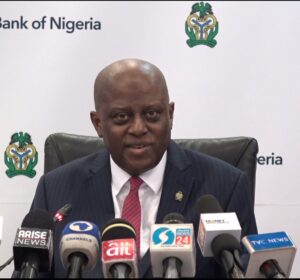
The monetary policy committee (MPC) of the Central Bank of Nigeria (CBN) has raised the monetary policy rate (MPR), which benchmarks interest rates in the country to 27.50 percent — from 27.25 percent.
Olayemi Cardoso, CBN’s governor, announced the committee’s decision at a press conference on Tuesday after the panel’s 298th meeting in Abuja.
He said the committee increased the MPR by 25 basis points.

2025: How To Plan A Budget For The Upcoming Year

Ruud van Nistelrooy Opens Up on Hurtful Manchester United Exit Before Taking Leicester City Job

Obasanjo would have died under Abacha if not for me -Gowon

Why I don’t trust any public institution in Nigeria – Fisayo Soyombo

Minimum Wage: Cross Rivers Workers to embark on indefinite strike

Bayer Leverkusen Forward Victor Boniface Faces Possible Sanction for Reckless Driving Incident

Radda approves N70,000 minimum wage for Katsina workers

PH refinery has not commenced bulk sales – NNPC

CBN issues Dec. 1, ultimatum against banks, ATM delays


